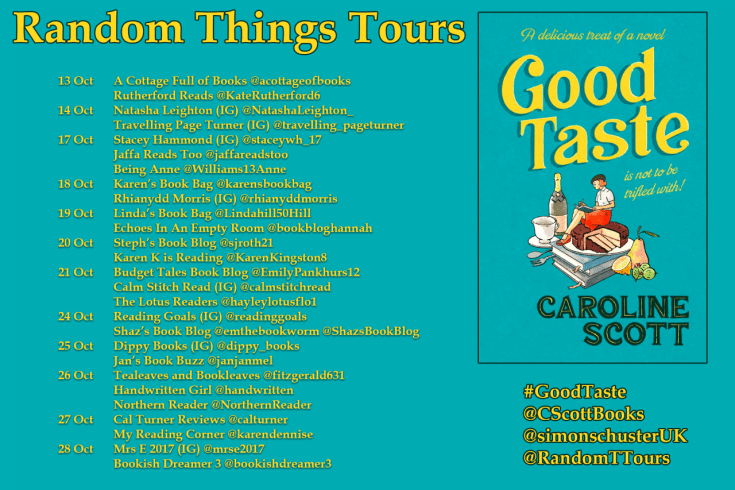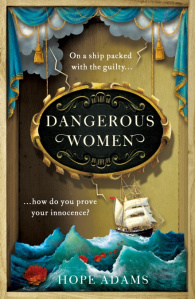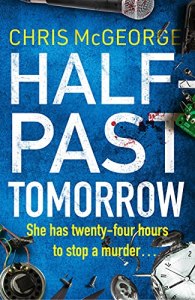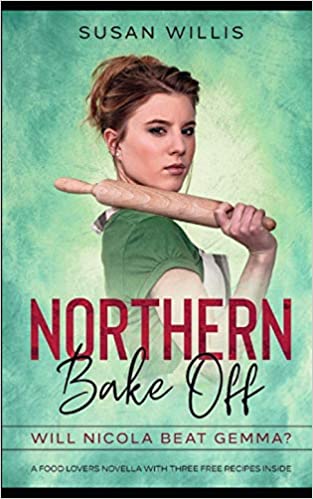Further reviews: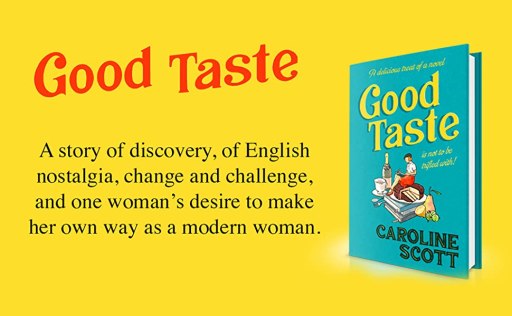
Good taste is in the eye of the beholder…
In all honesty, I can’t say that I will be trying out any of the recipes mentioned any time soon, although the rum butter did sound delicious, I will pass on the blackbird pie and eels but I thoroughly enjoyed my time with Stella and her quest to discover the best of English food. The story was both light hearted and poignant and I was rooting for Stella as she attempted to deal with various complications, both in her professional and personal life. Definitely recommended.
Caroline Scott’s writing is descriptive and evocative with supporting characters that both drew me in and horrified me. Stella’s story is a reminder of how important family and good friends are and also a lesson in never giving up.
England, 1932, and the country is in the grip of the Great Depression. To lift the spirits of the nation, Stella Douglas is tasked with writing a history of food in England. It’s to be quintessentially English and will remind English housewives of the old ways, and English men of the glory of their country. The only problem is –much of English food is really from, well, elsewhere . . .
Although the story is set in 1932, I did sometimes forget this as so much about the tone of the story felt relevant today. Magazine feature writer and struggling author Stella Douglas’ previous book about Elizabeth Raffald, an eighteenth century English cook, has received disappointing sales and her publisher summons her to a meeting where she fully expects to be given the worst news. However instead of continuing with her current planned biography of another cookery writer she is given a new project and armed with a £40 advance, she sets out to discover the history of English food. Not as easy as she first imagined, as so much has its foundations in food from other shores.
So, Stella sets about unearthing recipes from all corners of the country, in the hope of finding a hidden culinary gem. But what she discovers is rissoles, gravy, stewed prunes and lots of oatcakes.
My thanks to both Anne Cater of Random Things Tours for the tour invite and the publisher Simon & Schuster for the copy to review. Having enjoyed Caroline Scott’s historical writing previously, (When I Come Home Again is reviewed on the blog), the premise of this story greatly appealed and I was thrilled when my copy appeared through the letterbox.
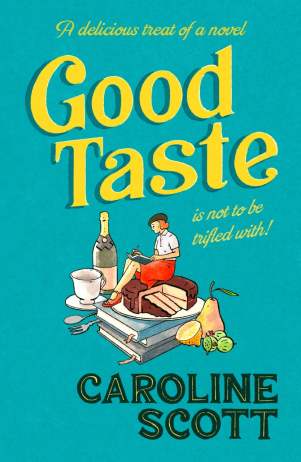
Good Taste is not just a story of oatcakes and offal, but also tells of Stella’s personal journey; the loss of her mother, the grief of her father, being badly let down, honesty and deceit and watching someone you care for fall for someone else. Stella was such an engaging character – independent and forthright in many ways but vulnerable, guilt-ridden and feeling so very alone at times. The book is peppered with letters from members of the public with their own family recipes and local dishes that Stella attempts to incorporate into her book – not always with the desired results. However what I found the most moving were the notebook entries from her mother Elizabeth – they said so much about the relationship between Stella and her beloved mother and although Stella didn’t always realise it, were an inspiration as well as a revelation.
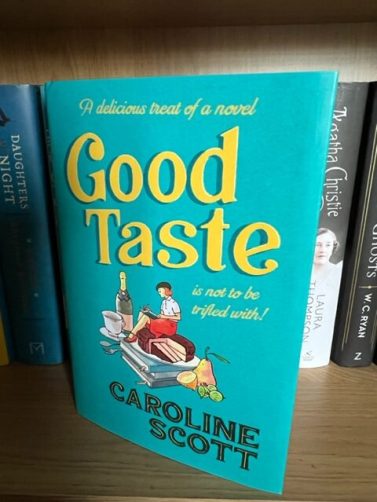

Caroline completed a PhD in History at the University of Durham. She developed a particular interest in the impact of the First World War on the landscape of Belgium and France, and in the experience of women during the conflict – fascinations that she was able to pursue while she spent several years working as a researcher for a Belgian company. Caroline is originally from Lancashire, but now lives in southwest France. The Photographer of the Lost was a BBC Radio 2 Book Club pick.
